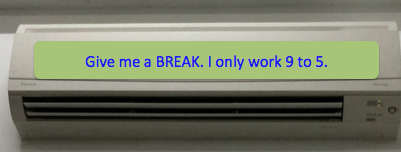If you’re a new landlord, you might be in a rush to find tenants. And if you have a mortgage, it might be a life-and-death situation. By all means, move fast to cover your property costs; but remember that, if you neglect the small details over several years, it can cost you a fair bit. Here are the things first time landlords tend to overlook:

Image Credit: Pixabay
1. If you want to take on multiple unrelated tenants, you need to ground rules for the common areas
With the rental market softening, more and more landlords are willing to split their units and rent separate rooms. You may even make more money this way. But don’t forget that different concerns come into play, especially with regard to common areas like the kitchen and living room.
If your tenants are splitting the utility bill, for example, then the air-conditioner in the living room can become an issue. What will you do if the other tenants complain that it’s just one particular person who sits there all day, with the air-con at full blast while playing on his Xbox? Or what happens if one tenant is a cooking enthusiast, and monopolises the kitchen fridge and cabinet with herbs, cuts of meat, and other exotic ingredients (e.g. a giant pot for broth that must be boiled for 24 hours)?
In an ideal world, you can just leave your tenants to work it out. In the actual world we live in, you’re going to be bombarded by angry calls, e-mails, and even threats that you’re somehow violating the tenancy agreement. Be aware that these “small matters” compound over time, and cost you money when tenants refuse to renew the lease because of them.

To avoid wasting hours of your life on what is, frankly, babysitting, you need to establish ground rules for common areas. These include rules like:
- When the air-conditioner can be turned on in the living and dining rooms (note: even if they’re happy to pay the bill, blasting it at 18 degrees for 12 hours a day is sure to wreck your air-con)
- What can or cannot be done in the kitchen
- How many guests can be brought into the common areas, and at what hours (even if you’re okay with student parties, your other tenants may not be)
- What can be kept in the common areas (is a fish tank okay? What if someone wants to set up an altar?)
If you have a property agent, they can guide you on some common, practical restrictions to consider. You can also get the agent to walk your tenants through the rules, if you’re too busy.
2. Don’t forget you can claim tax deductions for maintenance costs
At some point, somebody will break a window or splatter coffee on your beautiful wallpaper. Things will need to be replaced. At that point, don’t forget the Inland Revenue Authority of Singapore (IRAS) allows you to claim tax deductions.
You don’t actually have to keep track of every single maintenance cost; IRAS allows you to claim a flat 15 per cent of your gross annual rental as expenses. For example, if you rent out the unit for $3,500 a month, your gross annual rental is $42,000. You can claim 15 per cent of this ($6,300) as a deduction.
The only time you don’t want to do that is if you’ve had major restoration work. If you had to restore the entire living room because an idiot tenant set fire to it, the expenses are probably way more than 15 per cent of the gross annual rental. In such cases, you’d better keep every invoice to claim as much as possible.
Note that you can only claim for maintenance, and not improvements or additions.
3. If your tenants are not paying for utilities, keep track of the bills so you can claim tax deductions
We wish more property agents would point this out to new landlords. If they knew about it, they might not consider the utility bill to be a deal-breaker in negotiations. So we’ll tell you right now:
As long as the tenant is not reimbursing you for utilities, IRAS allows you to claim the utility bills as tax deductions. You just need to keep track of the amounts. And to be clear, this is inclusive of internet charges and expenses. So don’t get too hung up on this issue, when negotiating your rental agreement. Also, don’t fall for the trap of lowering your asking price too much, just because the tenant is offering to cover utilities.
4. It might be better to hold out for a tenant with a longer lease
Tenants can now take up three month leases.
However, it’s not a good idea to keep on taking on tenants on short leases. Every time you need to get a new tenant, there’s a risk of vacancy and an acquisition cost (if you need to do marketing or engage a property agent). Also, you might want to note that when rental markets are soft, savvy tenants want short leases for negotiating purposes. They are counting on being able to negotiate for a lower price later on; another risk you face if you keep taking on short-lease tenants.
It may be worth holding out for a month, to get a tenant who will sign a one or two year lease rather than three or six month leases. The benefits will more than outweigh the cost for that one month of vacancy. This is also why landlords should make a practice of saving up an emergency fund, which can cover up to six months of the mortgage; that would give them the ability to hold out for better deals.
5. There are renovation loans you can use before credit cards and personal loans
One common mistake among new landlords is to immediately take personal loans, to furnish the house. But a better option is to use renovation (reno) loans first.
Reno loans can go as low as 2.86 per cent per annum, whereas personal loans can reach three to six per cent per annum. Credit cards charge around 26 per cent per annum. Some banks even have promotions, during which the renovation loan is interest-free for six months. It’s a good idea to use these, if you’re confident of paying off the full amount during the interest free period.
Reno loans have a cap of $30,000 or six months of your income, whichever is higher. So take the reno loan first; save the other kinds of loans for if your contractor busts the budget.
Our home loan experts can help you find the cheapest renovation loan on the market, and get you approved without the hassle of paperwork. Drop us a call if you need a house furnished.
Oh, by the way, as a property investor, you may want to check out your current mortgage interest rate, in case you are overpaying, you may want to refinance your home loan.






